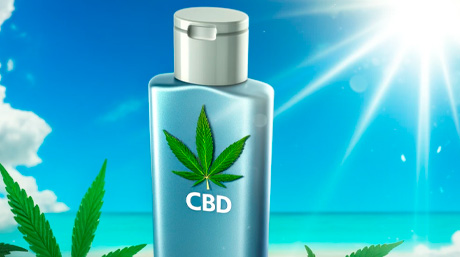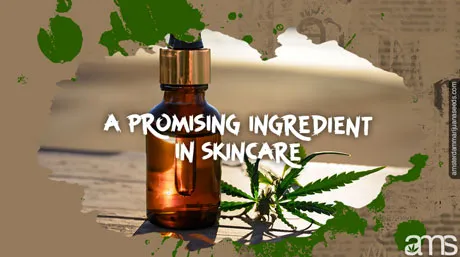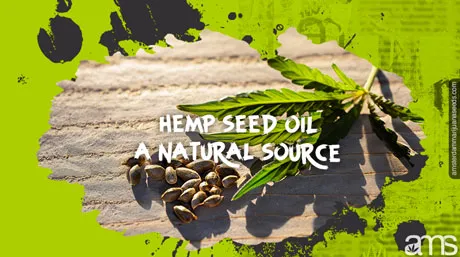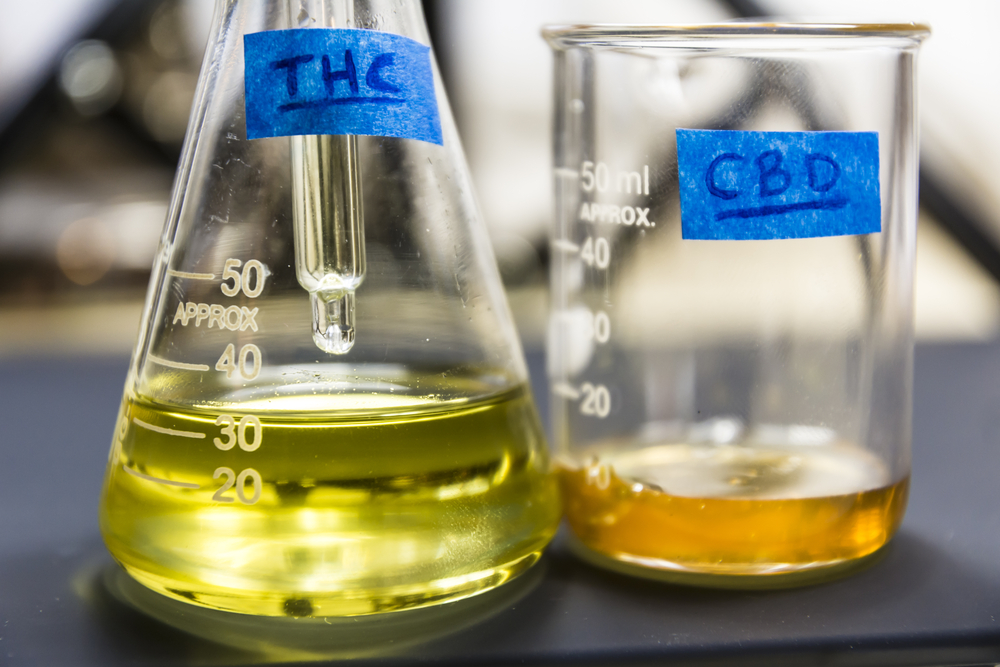Sunscreen is a vital tool in our arsenal to protect our skin from the harmful effects of the sun’s rays. It shields us from damaging ultraviolet (UV) radiation, preventing sunburns, and premature aging, and reducing the risk of skin cancer. However, recent advancements in skincare have introduced a new ingredient that can enhance the effectiveness of sunscreen: CBD.
The Importance of Sunscreen: Shielding Your Skin from Harmful UV Rays
CBD, short for cannabidiol, is a compound derived from the cannabis plant. It has gained significant attention for its potential health benefits, particularly for its anti-inflammatory and antioxidant properties. When it comes to skincare, Cannabidiol has shown promise in promoting healthy skin cells, reducing inflammation and redness, and fighting off free radicals.
Sunscreen is not just a skincare product; it is a crucial line of defense against the harmful effects of the sun’s UV rays. UV radiation consists of UVA and UVB rays, both of which can penetrate the skin and cause significant damage. UVA rays are responsible for long-term skin damage, such as premature aging and the development of wrinkles, while UVB rays are the primary culprits behind sunburns.
Applying sunscreen with a high sun protection factor (SPF) forms a barrier on the skin that helps to absorb, reflect, or scatter the UV rays. This barrier prevents them from reaching the deeper layers of the skin, reducing the risk of sunburn, photoaging, and skin cancer. Regular use of sunscreen, even on cloudy days or during the winter months, is crucial because UV rays can still penetrate through clouds and cause damage.

Introducing CBD: A Promising Ingredient in Skincare
CBD has emerged as a promising ingredient in skincare due to its numerous potential benefits. Derived from the cannabis plant, Cannabidiol is non-psychoactive, meaning it doesn’t induce a “high.” Instead, it offers a range of therapeutic properties, particularly its anti-inflammatory and antioxidant effects.
Inflammation plays a significant role in various skin conditions, including acne, eczema, and psoriasis. Cannabidiol’s anti-inflammatory properties can help alleviate redness, swelling, and discomfort associated with these conditions, providing relief to those who struggle with them. By reducing inflammation, CBD can promote a calmer, more balanced complexion and contribute to overall skin health.
Furthermore, Cannabidiol is rich in antioxidants, substances that protect the skin against damage caused by free radicals. Free radicals are unstable molecules that can cause oxidative stress, leading to cellular damage, premature aging, and a dull complexion. Cannabidiol’s antioxidants help neutralize these free radicals, reducing the risk of oxidative damage and supporting healthier, more youthful-looking skin.
CBD’s potential benefits extend beyond addressing specific skin conditions. It can also help soothe sensitive or irritated skin, making it an appealing option for individuals with reactive skin types. By calming the skin’s response to external aggressors and providing nourishment, CBD-oil can contribute to a healthier skin barrier and improve overall skin condition.
As the popularity of CBD in skincare continues to rise, more research is being conducted to explore its full potential and understand the mechanisms behind its effects. While CBD is a relatively new player in the skincare industry, its unique properties make it an exciting ingredient worth considering for those seeking natural alternatives to traditional skincare products.
When combined with sunscreen, Cannabidiol has the potential to enhance its effectiveness and provide additional benefits for the skin. The anti-inflammatory and antioxidant properties of Cannabidiol can work synergistically with the protective qualities of sunscreen, helping to reduce redness, soothe sunburned skin, and combat the harmful effects of free radicals generated by UV radiation. This combination offers a comprehensive approach to sun protection and skincare, supporting the overall health and well-being of the skin.
By combining CBD-oil with sunscreen, you can provide your skin with an extra layer of protection and potential benefits.

Enhancing Sunscreen Effectiveness with CBD: A Powerful Combination
- Potent Antioxidant Protection: CBD is known for its powerful antioxidant properties, which can help neutralize free radicals caused by UV radiation. Free radicals are unstable molecules that can damage skin cells, leading to oxidative stress and premature aging. By adding CBD to your sunscreen, you can enhance its ability to combat these harmful free radicals, reducing the risk of wrinkles, fine lines, and other signs of aging.
Harnessing CBD’s Antioxidant Properties for Skin Protection
- Anti-Inflammatory Effects: Sunburns can cause redness, swelling, and discomfort due to inflammation. CBD’s anti-inflammatory properties can help soothe the skin and alleviate these symptoms. When applied topically, CBD can interact with cannabinoid receptors in the skin, modulating the immune response and reducing inflammation.
Soothing Sunburns and Reducing Inflammation with CBD
- Skin Healing: CBD’s potential healing properties can be beneficial for sun-damaged skin. Sun exposure can disrupt the skin barrier, leading to dryness, peeling, and an increased risk of infection. CBD oil can aid in repairing and rejuvenating the skin by promoting the production of healthy skin cells.
CBD’s Potential for Skin Healing and Rejuvenation
CBD’s potential for skin healing and rejuvenation extends beyond its anti-inflammatory and antioxidant properties. One of the remarkable qualities of CBD is its ability to moisturize and nourish the skin, promoting a healthy complexion and supporting overall skin health.
When applied topically, CBD interacts with receptors in the skin known as cannabinoid receptors. These receptors are part of the endocannabinoid system, which plays a crucial role in maintaining the skin’s balance and regulating various physiological processes. CBD’s interaction with these receptors can help regulate sebum production, the skin’s natural oil. This is especially beneficial for individuals with oily or acne-prone skin, as excessive sebum production can lead to clogged pores and breakouts. By balancing sebum production, CBD can contribute to clearer, more balanced skin.
Furthermore, CBD’s moisturizing properties help to replenish and retain moisture in the skin. It forms a barrier on the skin’s surface, preventing water loss and locking in hydration. This can be particularly beneficial for individuals with dry or dehydrated skin, as it helps to restore the skin’s natural moisture balance and alleviate dryness. By keeping the skin adequately moisturized, CBD promotes a healthy and supple complexion.
In addition to its moisturizing qualities, Cannabidiol contains essential fatty acids, such as omega-3 and omega-6, which are beneficial for the skin. These fatty acids help to strengthen the skin’s natural barrier function, allowing it to better retain moisture and protect against external aggressors. They also have anti-inflammatory properties that can calm and soothe irritated or inflamed skin, reducing redness and promoting a more even skin tone.
Moreover, CBD’s potential to promote skin rejuvenation is attributed to its ability to support the production of healthy skin cells. It stimulates the process of cellular regeneration, which plays a crucial role in maintaining the skin’s youthfulness and vitality. By promoting the growth of new skin cells, CBD can help fade the appearance of blemishes, scars, and hyperpigmentation, leading to a more even complexion.
| Benefits and Use Cases | Description |
|---|---|
| Anti-Inflammatory | CBD’s anti-inflammatory properties alleviate redness, swelling, and discomfort in skin conditions like acne, eczema, and psoriasis. |
| Antioxidant Protection | CBD’s antioxidants neutralize free radicals caused by UV radiation, reducing wrinkles and premature aging. |
| Soothing Sensitive Skin | CBD soothes sensitive or irritated skin, making it suitable for individuals with reactive skin types. |
| Skin Healing | CBD promotes the healing of sun-damaged skin by aiding in the production of healthy skin cells. |
| Moisturizing | CBD moisturizes the skin, replenishing moisture and supporting a healthy, supple complexion. |
| Skin Rejuvenation | CBD stimulates the growth of healthy skin cells, helping to fade blemishes and promote a more even complexion. |
The combination of CBD’s moisturizing, nourishing, and rejuvenating properties makes it a valuable ingredient in skincare formulations. Whether incorporated into moisturizers, serums, or masks, CBD can provide the skin with the necessary elements to restore its natural balance, promote healing, and enhance its overall resilience. It offers a holistic approach to skincare, addressing multiple concerns and supporting the skin’s health and appearance.
When CBD is combined with sunscreen, these skin-healing and rejuvenating qualities can further enhance the overall benefits of sun protection. CBD’s moisturizing properties help counteract the potential drying effects of sun exposure, while its ability to promote skin rejuvenation aids in repairing any damage caused by UV radiation. By incorporating CBD into sunscreen, you can not only protect your skin from the sun’s harmful rays but also provide it with nourishment and support its natural healing processes.
It’s important to note that the effectiveness of CBD in skincare may vary from person to person, and individual results may differ. It’s advisable to choose high-quality CBD skincare products from reputable brands and perform patch tests before applying them to larger areas of the skin. Consulting with a dermatologist or skincare professional can also provide personalized recommendations based on your specific skin concerns and needs.
Overall, CBD’s potential for skin healing and rejuvenation, coupled with its moisturizing and nourishing qualities, make it a versatile ingredient in skincare. When combined with sunscreen, CBD offers a comprehensive approach to protecting and caring for the skin, promoting its overall health, and helping it look its best.
Hemp Seed Oil: A Natural Source of Sun Protection
In addition to the benefits of CBD, another component of the cannabis plant, hemp seed oil, offers some natural sun protection. Hemp seed oil is derived from the seeds of the hemp plant and has been recognized for its various skincare benefits. While it cannot replace the need for traditional sunscreen, it can provide an added layer of defense against the sun’s harmful UV rays.
Hemp seed oil contains natural compounds that act as sun protectants. It has an approximate Sun Protection Factor (SPF) of 6, which means it can block about 75% of UVB rays. However, it is important to note that this level of sun protection is relatively low compared to the broad-spectrum protection provided by SPF-rated sunscreens. Therefore, it is crucial to combine hemp seed oil with other sun protection measures for comprehensive coverage.
The inclusion of hemp seed oil in sunscreen formulations can offer additional benefits for the skin. Hemp seed oil is rich in essential fatty acids, such as omega-3 and omega-6, which are known for their moisturizing and nourishing properties. These fatty acids help to keep the skin hydrated, improve its elasticity, and support its natural barrier function. By maintaining the skin’s moisture levels, hemp seed oil can prevent dryness and promote a healthy, supple complexion.
Furthermore, hemp seed oil is abundant in antioxidants, including vitamin E, which can help protect the skin from free radicals generated by UV exposure. Free radicals are unstable molecules that can damage the skin’s cells and contribute to premature aging. The antioxidant properties of hemp seed oil can counteract the oxidative stress caused by UV radiation, reducing the risk of wrinkles, fine lines, and other signs of photoaging.

CBD and Hemp: Complementary Elements in Sunscreen
CBD and hemp are complementary elements in sunscreen formulations. While CBD offers its unique anti-inflammatory, antioxidant, and skin-soothing properties, hemp seed oil contributes its natural sun protection and moisturizing benefits. Combining these two components can result in a synergistic effect, enhancing the overall effectiveness of the sunscreen and providing a comprehensive approach to sun protection.
The presence of CBD in sunscreen can further amplify the anti-inflammatory and antioxidant benefits. CBD’s interaction with cannabinoid receptors in the skin can help regulate immune responses and reduce inflammation caused by UV exposure. This can aid in soothing sunburned skin, minimizing redness, and promoting faster healing.
Additionally, CBD’s antioxidant properties can complement the sun protection provided by hemp seed oil. As mentioned earlier, UV radiation generates free radicals that can damage the skin. CBD’s potent antioxidants can neutralize these free radicals, preventing oxidative stress and contributing to long-term skin health.

Choosing Quality CBD Sunscreen: Prioritizing Safety and Efficacy
When selecting CBD sunscreen or any skincare products, it is essential to prioritize quality and safety. With the rising popularity of CBD-infused products, it becomes crucial to choose reputable brands that adhere to stringent manufacturing standards and prioritize consumer well-being.
Look for CBD sunscreen products that undergo third-party testing to ensure their potency and purity. Third-party testing involves an independent laboratory analyzing the product to verify the accuracy of the ingredients and confirm that it is free from contaminants. This step ensures that the CBD sunscreen you choose delivers the intended benefits and meets quality standards.
Additionally, it is important to consider the source of the CBD used in the sunscreen. CBD derived from hemp is legal nationwide and often preferred due to its non-psychoactive nature, meaning it does not induce a “high” or alter cognitive function. Hemp-based CBD products are non-transdermal, meaning they do not enter the bloodstream through the skin. This provides peace of mind for individuals seeking the benefits of CBD without any psychoactive effects.
By prioritizing quality, safety, and efficacy, you can confidently choose a CBD sunscreen that aligns with your skin care needs and provides the desired sun protection. Consulting with dermatologists or skincare professionals can also offer personalized recommendations based on your specific skin concerns and sensitivities.
In summary, while hemp seed oil offers some natural sun protection, it is essential to combine it with traditional sunscreen to ensure comprehensive coverage against UV radiation. The combination of CBD and hemp seed oil in sunscreen formulations can provide additional benefits for the skin, including anti-inflammatory, antioxidant, and moisturizing properties. Choosing high-quality CBD sunscreen products from reputable brands is crucial to ensure their safety and efficacy, allowing you to enjoy the sun while effectively protecting and nourishing your skin.
CBD Sunscreen: A Complement to Responsible Sun Exposure Practices
In conclusion, Cannabidiol can complement sunscreen by providing additional skin benefits and enhancing its protective properties. With its anti-inflammatory and antioxidant effects, it can help reduce redness, soothe sunburned skin, and protect against harmful free radicals. However, it’s important to remember that CBD sunscreen should be used in conjunction with other sun protection measures for optimal skin health and sun safety. By responsibly enjoying the sun and taking care of your skin, you can experience the combined benefits of sunscreen and Cannabidiol for a satisfying and protected experience.
Frequently Asked Questions
What are the benefits of combining CBD with sunscreen?
Combining CBD with sunscreen offers several benefits for the skin. CBD’s anti-inflammatory properties can help soothe redness and discomfort caused by sunburns, while its antioxidants neutralize harmful free radicals generated by UV radiation, reducing the risk of premature aging. This combination provides enhanced protection against sun damage and promotes overall skin health.
Can CBD in sunscreen help with specific skin conditions?
Yes, CBD in sunscreen can be beneficial for various skin conditions. Its anti-inflammatory properties make it effective in alleviating redness and swelling associated with acne, eczema, and psoriasis. Additionally, CBD’s potential to promote skin healing can aid in repairing sun-damaged skin, supporting the production of healthy skin cells.
How does CBD moisturize and rejuvenate the skin in sunscreen formulations?
CBD interacts with cannabinoid receptors in the skin, regulating sebum production and promoting moisture retention. Its essential fatty acids, such as omega-3 and omega-6, strengthen the skin’s natural barrier and help soothe inflammation. Cannabidiol also stimulates cellular regeneration, leading to improved skin texture and a more even complexion.















